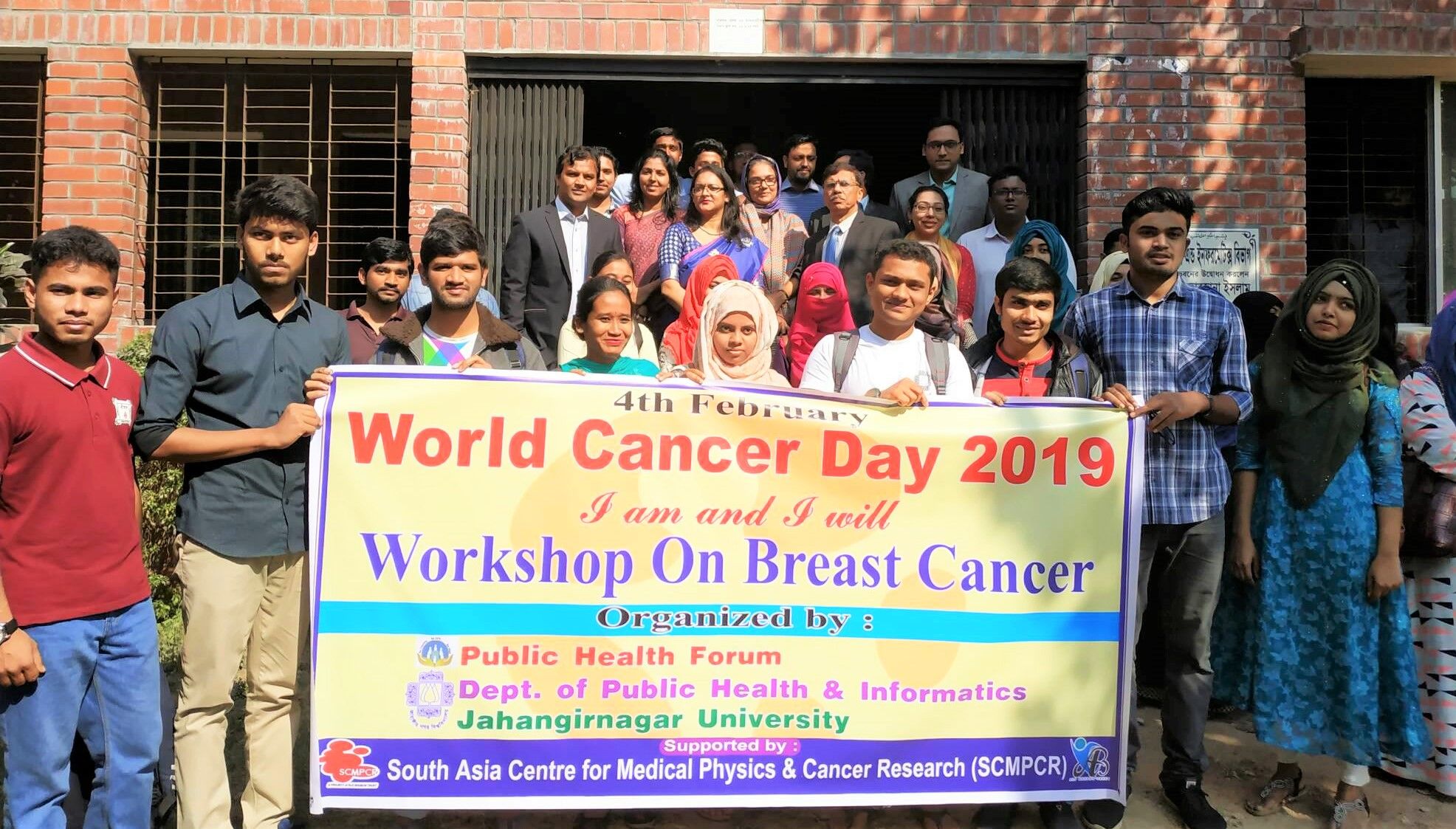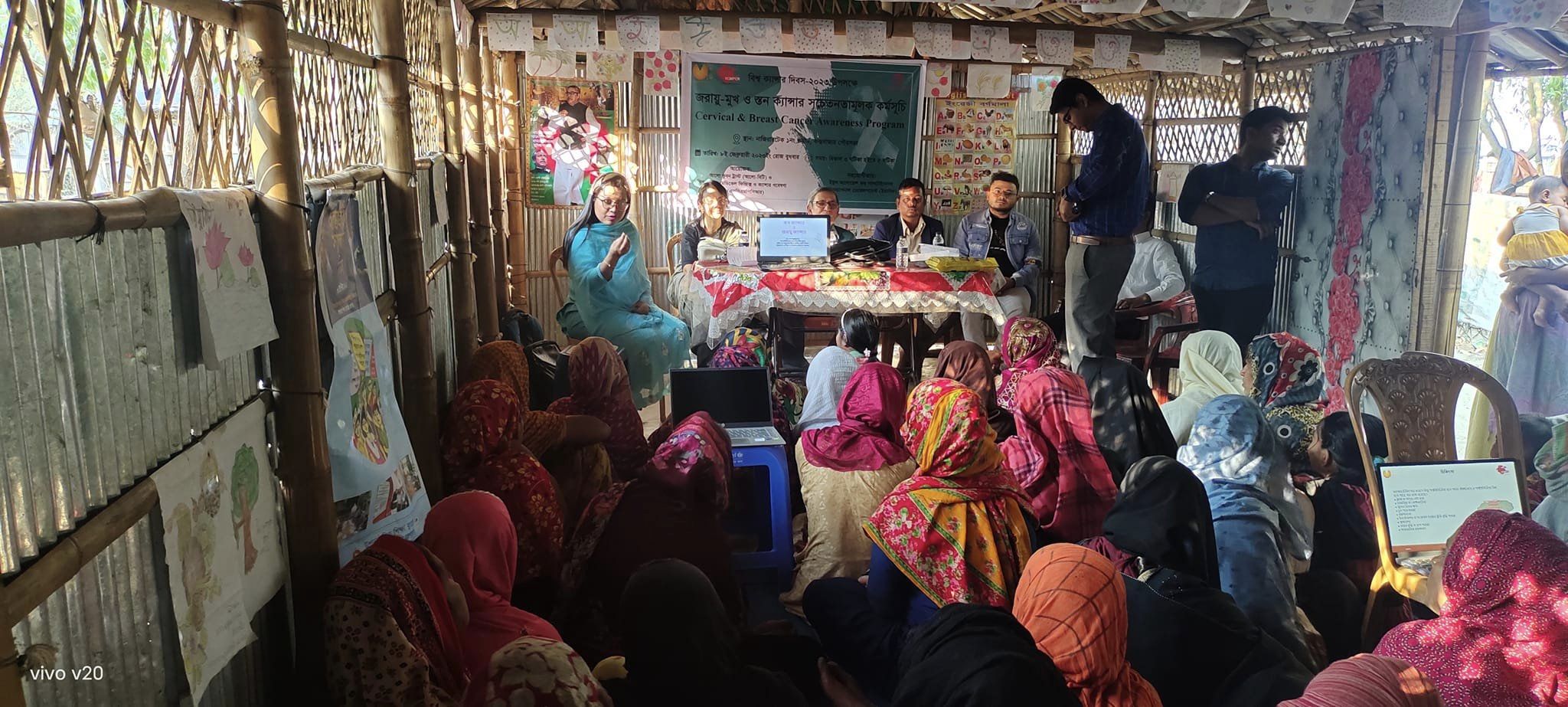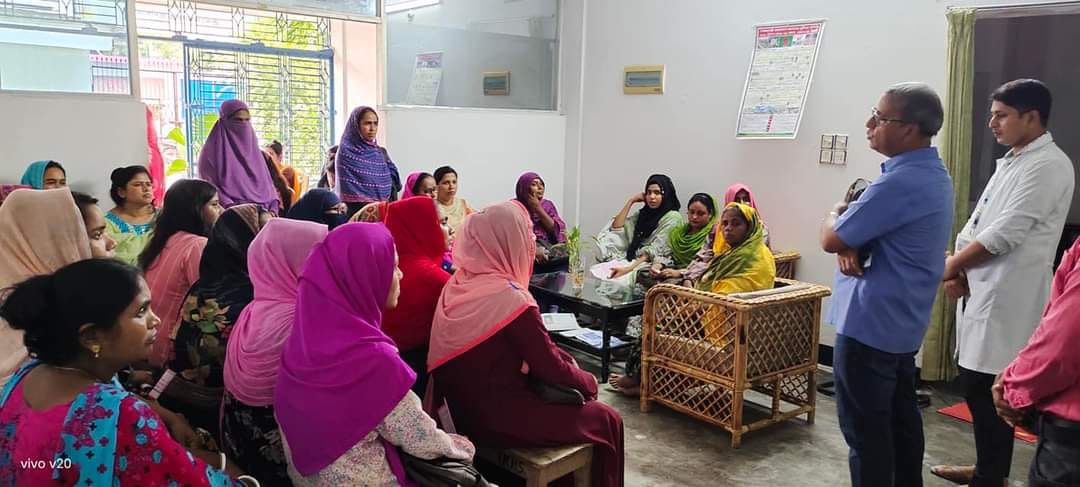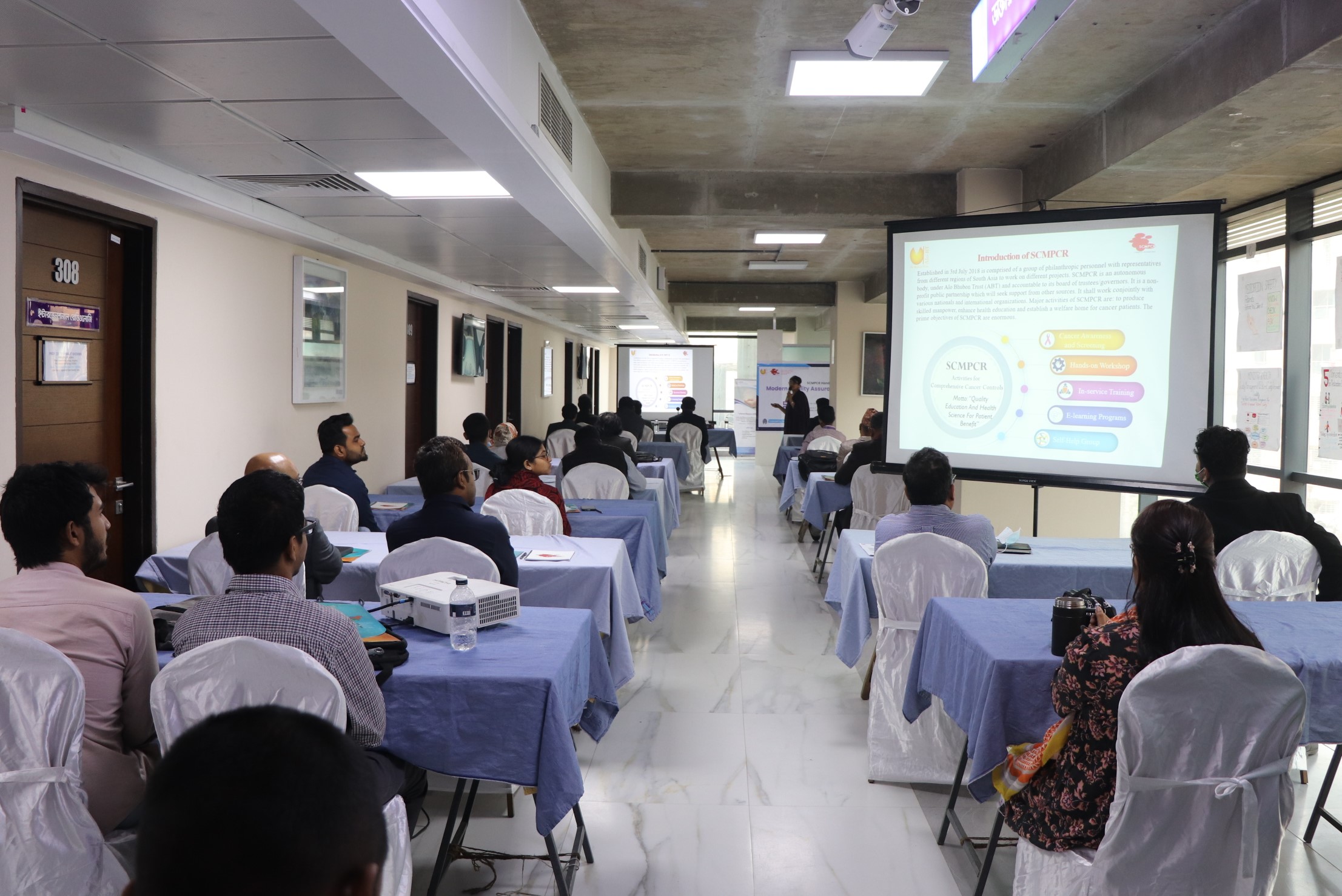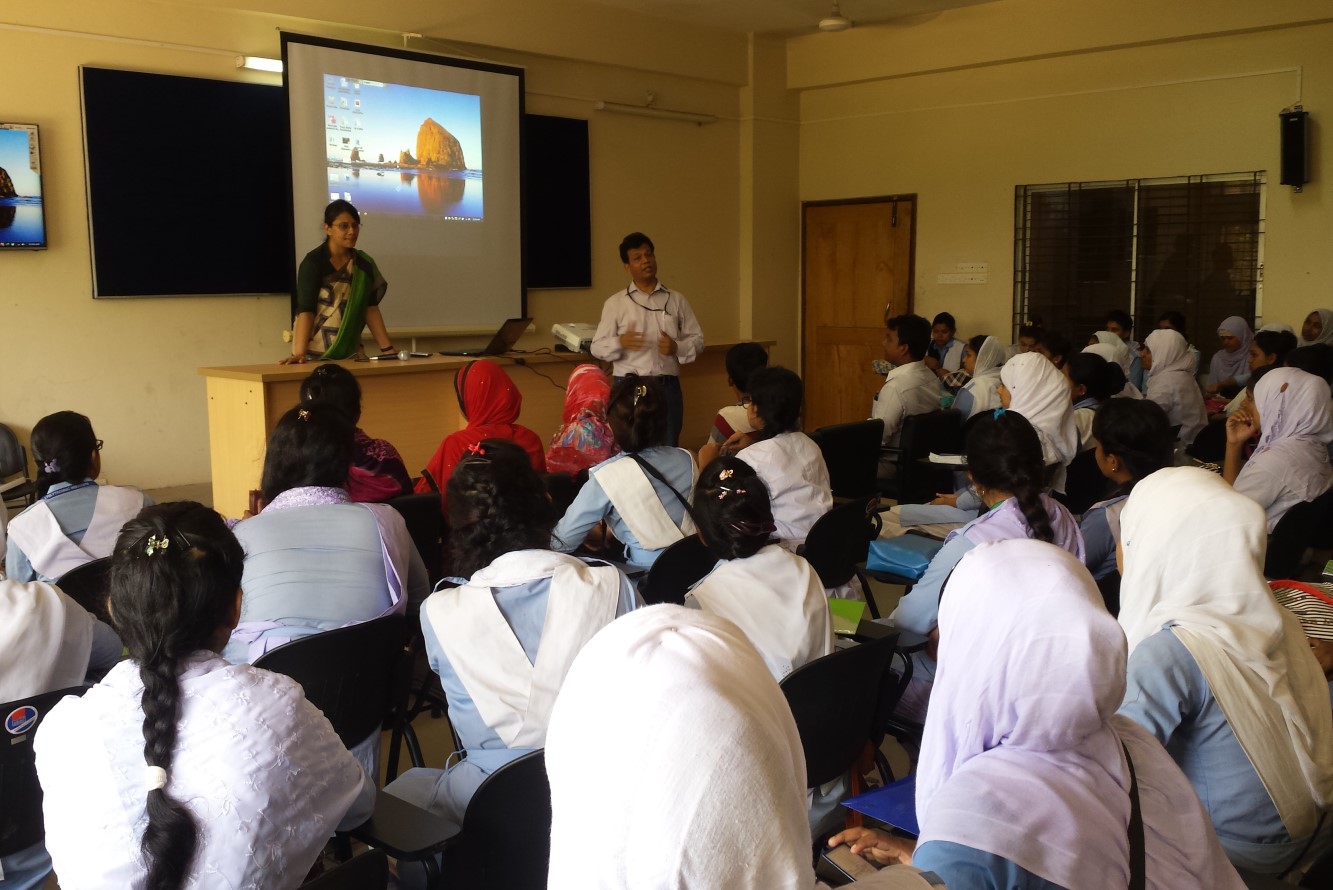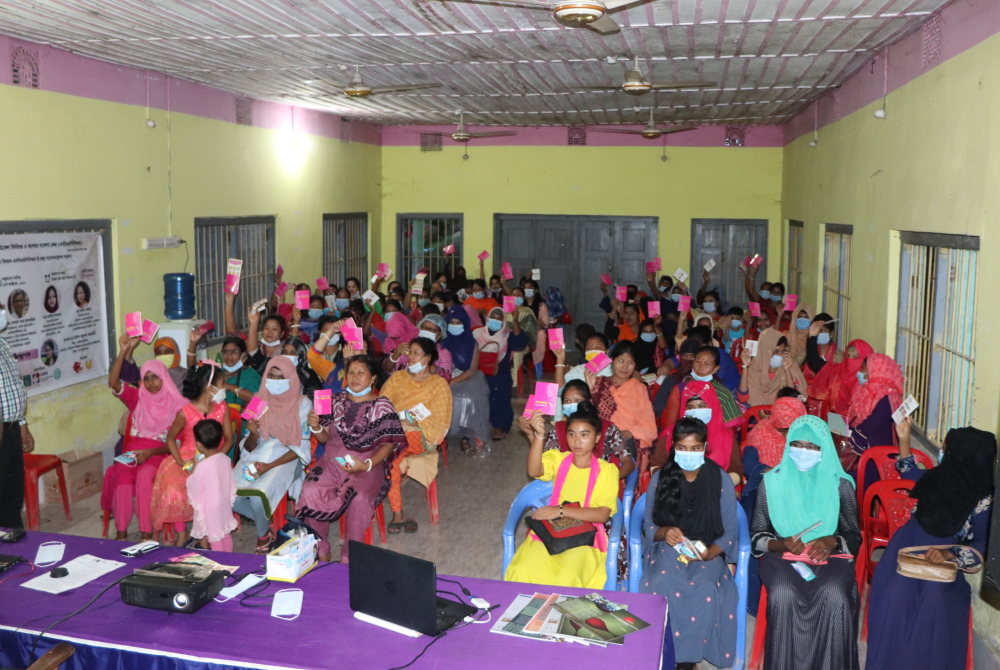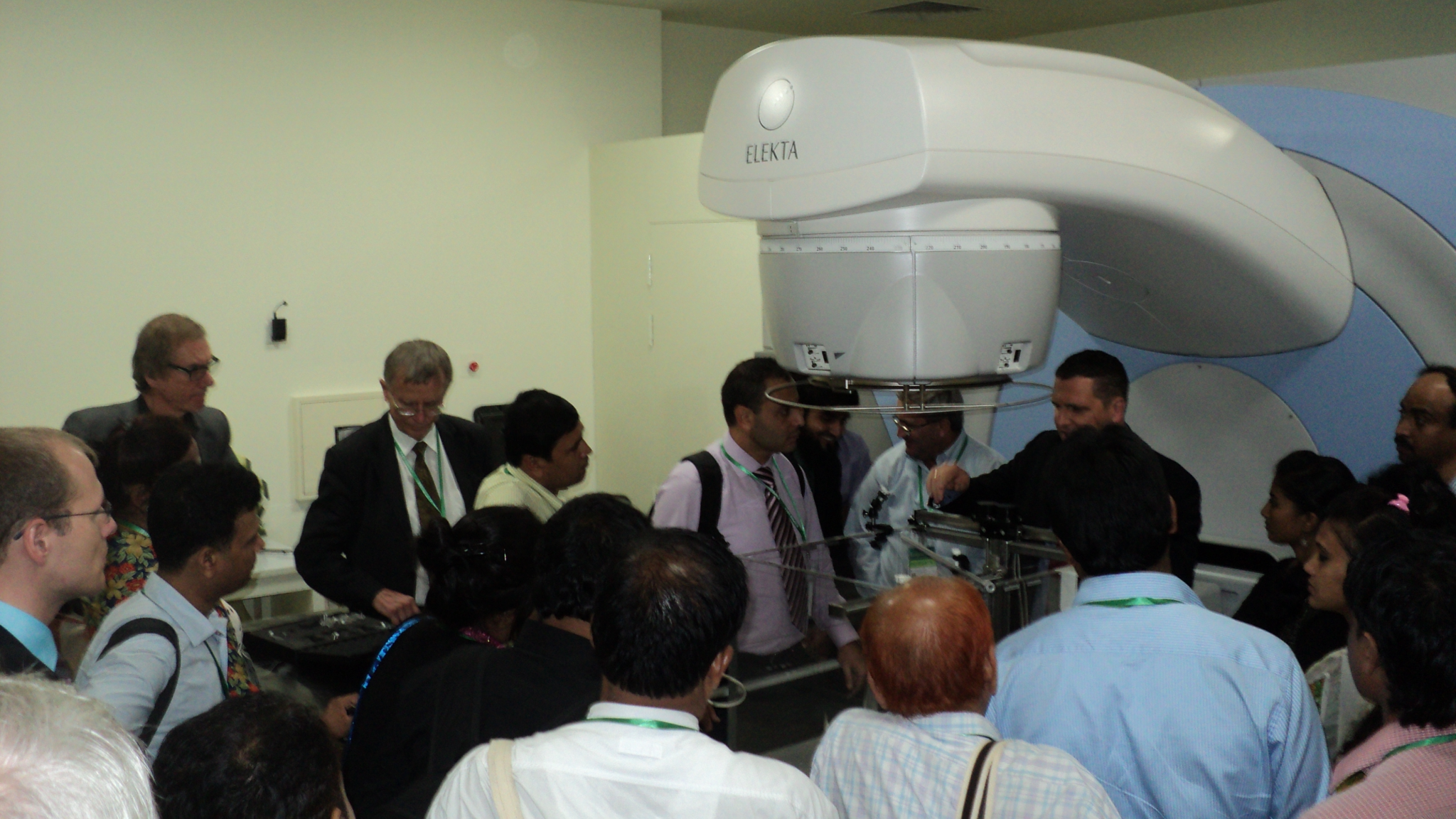
The prime project of Alo Bhubon Trust (Alo-BT) is the South Asia Centre for Medical Physics and Cancer Research (SCMPCR) started in July 2018. The South Asia (SA) region with its eight countries (Afghanistan, Bangladesh, Bhutan, India, Maldives, Nepal, Pakistan, and Sri Lanka) is about 1.891 billion population which is approximately one-fourth of the world’s population. Cancer is the second leading cause of death globally, accounting for an estimated 9.6 million deaths, or one in six deaths, in 2018.
In modern times our health treatment sectors are evolving with a lot of new advanced technologies being incorporated in the sector of cancer treatment. From diagnostic to treatment technique all the equipment needs good maintenance and high-quality control and precision and accurate cancer treatment. So, increasing the number of qualified manpower in the field of cancer care in the South Asia region is mandatory.
Despite massive diversity across the South Asian countries, they face a big challenge to develop cancer control programs. SCMPCR is constantly trying to improve all the sectors which are required to build a Qualified Cancer treatment team.
To meet the challenge of 21-century medicine especially for advanced cancer treatment in Bangladesh and the South Asian region, SCMPCR will act as a center of excellence in the near future. Our beginning journey since its establishment has already shown a positive impact on the SA region. Many academicians, researchers, personals of cancer teams of different countries of the SA region comment on their positive views and suggestions in our newsletter, and hopefully, we can build an excellent hub for Cancer Control in the South Asia Region with the cooperation of well-wishers and philanthropic personal.
